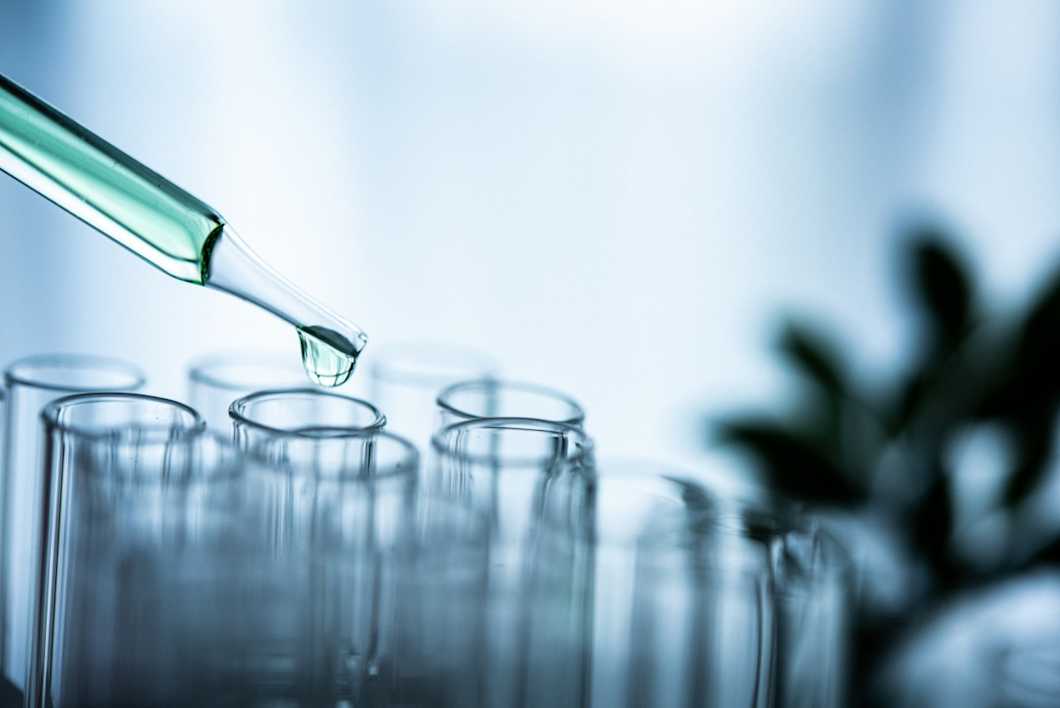The QuEChERS method
Quick, Easy, Cheap, Effective, Rugged, and Safe (QuEChERS) sample preparation is a technique that is primarily used to extract biocide contaminants from crops and other food products before analysis.

When is QuEChERS sample preparation used?
QuEChERS is most commonly used to prepare food, feed, and supplement samples for pesticide residue analysis with gas or liquid chromatography techniques (GC-MS/MS, LC-MS/MS, UPLC-MS, etc.). Typical sample matrices include crops, such as fruit, vegetables, cereals, and tobacco, but the technique can also be used to prepare a range of other food industry samples, such as milk, beer, baby food, and fish.
In addition to pesticide screening, QuEChERS can be applied to mycotoxin testing of grain-based products. Some mycotoxins that can be extracted with the method include aflatoxins, ochratoxin A, and zearalenone.
How does the QuEChERS method work?
QuEChERS begins by ensuring the matrix to be analyzed is homogeneous and ready for extraction. Next, a solvent and extraction reagent are added, and the mixture is agitated to ensure maximum extraction. This mixture is centrifuged, and the organic layer is removed. If necessary, further extraction and centrifugation steps can be performed to improve cleanup. Finally, the organic mixture is removed and analyzed by liquid or gas chromatography to detect and characterize the contaminants it contains.
Advantages and limitations
QuEChERS represents an efficient and effective method of extracting desired analytes, such as pesticides, from complex mixtures. These mixtures, particularly when concerned with food, can contain any number of waxes, oils, fats, and other organic compounds that can get in the way of standard spectroscopic analysis. By performing QuEChERS first, the user can extract only the compounds of interest. This not only makes the method more accurate and less susceptible to interference but allows for the detection of smaller quantities of contaminants.
The main limitation of QuEChERS is that the compounds of interest must be intentionally extracted, making the method unsuitable for the analysis of unknown contaminants. Furthermore, certain sample types that have low water content can suffer from low extraction efficiency, meaning a larger sample may be required to ensure accurate results.
Need analyses with QuEChERS preparation?
Measurlabs provides LC-MS and GC-MS testing with QuEChERS sample preparation, ensuring reliable results with fast turnaround times. Even batches of hundreds of samples are processed efficiently without compromising on quality. More than 1,000 companies already rely on Measurlabs for dependable service and accurate analyses. Share your testing needs through the form below, and our team will prepare a tailored quote.
Suitable sample matrices
- Fruit, vegetables, cereals
- Other food, feed, and supplements
Ideal uses of QuEChERS
- Pesticide residue screening
- Mycotoxin analysis
Ask for an offer
Fill in the form, and we'll reply in one business day.
Have questions or need help? Email us at info@measurlabs.com or call our sales team.
Frequently asked questions
Measurlabs offers a variety of laboratory analyses for product developers and quality managers. We perform some of the analyses in our own lab, but mostly we outsource them to carefully selected partner laboratories. This way we can send each sample to the lab that is best suited for the purpose, and offer high-quality analyses with more than a thousand different methods to our clients.
When you contact us through our contact form or by email, one of our specialists will take ownership of your case and answer your query. You get an offer with all the necessary details about the analysis, and can send your samples to the indicated address. We will then take care of sending your samples to the correct laboratories and write a clear report on the results for you.
Samples are usually delivered to our laboratory via courier. Contact us for further details before sending samples.